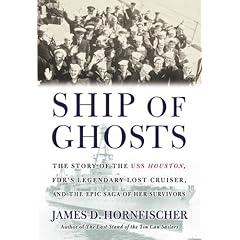What if, just for speculative purposes, we formed a deliberative body of elected officials. We then chartered them to formulate procedures and processes by which we would manage our society. Next, we might, via our voices in print and in polls and via the ‘net, collectively indicate what we felt the most seriousness about, communicating to them our priorities. Then we agree to pay them for this work and we then get back to our work of construction buildings, laying asphalt, fixing power generation plants and downed bridges.
Sounds like a good plan to me.
But….what happens? This esteemed group, by their actions, decides they would rather divide up into smaller factions and adopt a philosophy or “anything EXCEPT what the opposition wants!” Oh, then they begin to demand that their solution is the only acceptable one, and everyone else MUST do as they say, or they will do nothing but lay constant roadblocks in the way or any other progress. And…don’t get me started on endless cycles of hearings to find some fault with circumstances you just don’t like.
And top it off, with many serious issues unresolved, the body decides to further endear themselves to the working man and women, by taking off from work in the high heat of August, after promising to get it all done when you come back.
Congress: you have to love their way of collecting a fat paycheck and racking up an incredible retirement benefit package, while still not getting significant issues taken care of…
Now, consider for a moment, could I have been describing the Iraqi legislature? The actions of their elected officials seems very much like the constant, infantile squabbling coming out of our own hallowed institutions of the Senate and the House.
Here’s the irony I see: If one of our strategies was to build up democratic governments in the Middle East, beginning with Iraq, I would submit we just might have become overly successful, but somehow, we have failed to see the outcome for what it is. The Iraqis went to the polls, as we did, voted in people who promised to tackle the many issues that “We the People” have confirmed are worthy of their attention, but what have they, like us, received in return for our statement of confidence at the ballot boxes? Lots of talk, lots of back-biting, lots of wasted energy and certainly, not any worthwhile decisions. Quite a striking parallel, I’d say.
To be fair, there have been some Iraqi politicians who have lost their lives going to work. I can’t say that for our elected representatives, nor would I wish it on any of them, but I do see how there is some degree of courage the Iraqi must muster that ours need not actually have to have to get to their offices daily.
I think that the Iraqi politicians have, for the most part, modeled themselves after what our “democracy” style of today represents, which is something more like a “ME!-ocracy,” (I think that may be my 4th original/phrase concoction) were the “I” or “Me” is the ultimate customer of the process and the rest of us are supposed to “eat cake” while also sometimes standing up and yelling “I want it MY WAY!” or “WHAT’S IN IT FOR ME?!?!?!?!”
Maybe we expected that the Iraqis would have gone through a series of historical events of fiery oratory from modern day Jeffersons and Madisons and Washingtons and Henrys, and since that has not occurred, we don’t recognize they have skipped right over all of the hard work of getting it out on the floor, in speeches that will be recorded and repeated and quoted for centuries to come, then coming to a common ground, acceptable to the many, and from that unity of view, begin to take on the daily irritations of life, once the nation has a foundation.
So the irony of it all comes in many words and actions, with our own elected officials, who have yet to complete some important bills, for one the annually written (SURPRISE! – It happens every year!) Defense funding bills, moan and complain that the Iraqi parliament will take the month of August off for not only vacation, but because it’s so darn hot. Our elected reps make such remarks, while wiping the sweat from their brows, claiming Global Warming has made Washington, DC hot this same August (like so many other Augusts before), then they hop on their jets and beat feet out of town for…yes, “vacation”….Maybe they somehow justify theirs as superior to the time off of the Iraqis because they will be out at fund raising events, which, is their main work, so they are really not on vacation in their mind. Nice rationalization, but what they consider work is merely an investment in their future in a job where they can decide their own priorities and not perform, with little fear of being called to account for a lack of measurable results.
Note to Iraqis who might be reading this: You’d be better served studying our history before the late 60’s – early 70’s “flower children” brought their “do your own thing” mentality to the halls of government.
One more ironic point: I bet we could never get the libs to stand up and say “Hey! Time to bring the troops home in VICTORY because we have given them democracy! The Iraqi politicians are just like us, and we’re a democracy: Do nothing, lazy, power hungry, entrenched careerists, on vacation in August with nothing accomplished for all the pay, in it only for ourselves! Hooray for America!”





